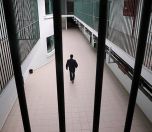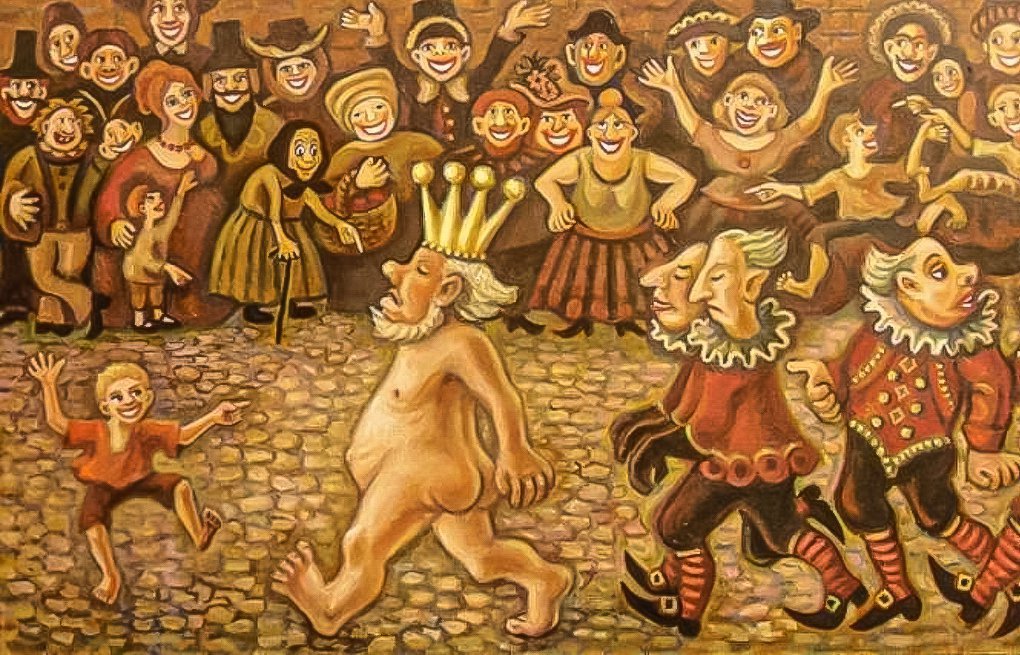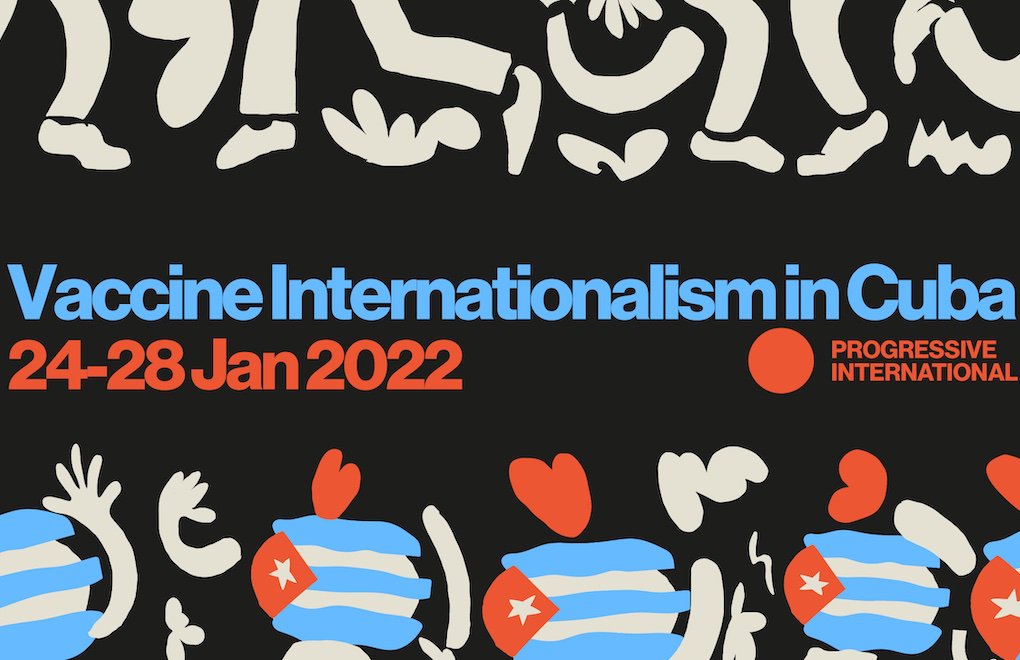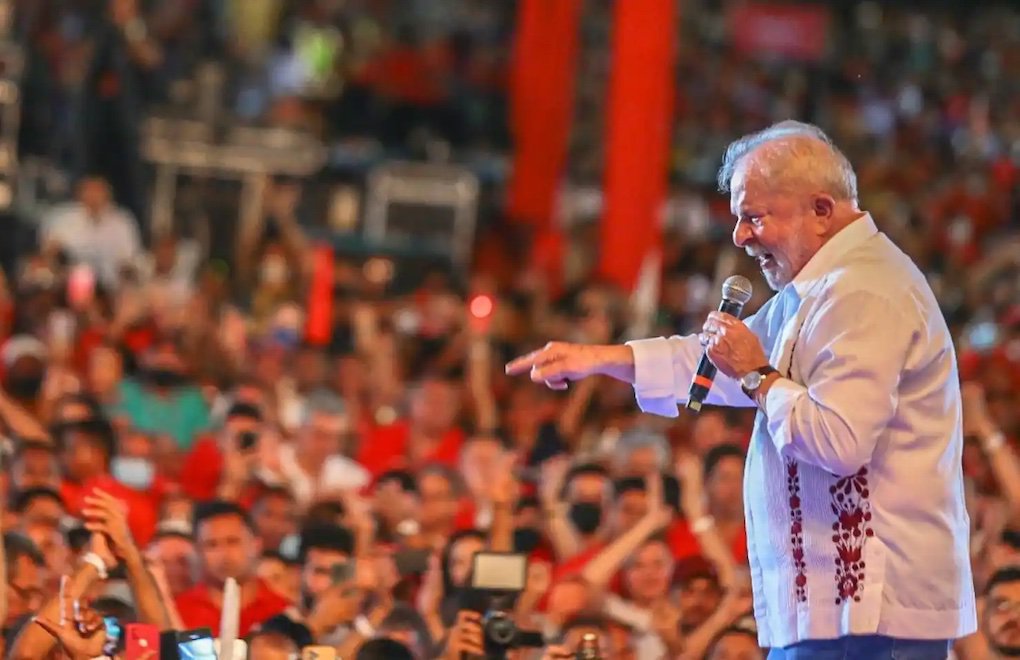HDP's Meral Danış Beştaş (l), AKP's Bülent Turan (r) and CHP's Özgür Özel discuss on the sidelines of the session. (Photo: AA)
Turkey's parliament passes Monday early hours, the controversial bill on the Penal Enforcement Law to immediately release at least 90 thousand inmates, excluding political prisoners, journalists and “criminals of thought”.
Moved by the ruling coalition parties AKP and MHP on March 31 the law passed with 279 votes against 51 in spite of vigorous opposition by the HDP, CHP and İYİ groups.
The package was moved in justification of responding the risks imposed by the Covid-19 pandemic for the inmates who were stuck in Turkey's already overloaded prisons. However the legislation is already marred for discriminating against political dissidents who are in jail in the absence of fair trial.
Alongside thousands of others, Selahattin Demirtaş of the HDP, journalist and author Ahmet Altan and philanthropist Osman Kavala too will remain in prison in spite of European Court of Human Rights decisions for their immediate release while president Erdoğan praises the law for its "healing effects" for ordinary criminals.
Saruhan Oluç, Peoples' Democratic Party (HDP) deputy parliamentary group co-chair, during the debate criticized the ruling parties with betraying their own premises: “We are wearing masks in this assembly, we are supplied disinfectants but the prisoners are not. 30-40 people are kept together in the dormitories. We are socially distanced here, but the prisoners are not. However, the ruling coalition persists on discriminating against certain groups. We call for equality and justice for all.”
“We will bring the legislation before the Constitutional Court” told Engin Özkoç, main opposition CHP deputy parliamentary group chair journalists after the finalization of the debate. “We have started preparations for that. We will continue the fight to defend the right to life and for the annulment of the law to include the release of the jailed 'criminals of thought', academics and all.”
The CHP responds to the call from Turkey’s opposition circles, human rights activists and prominent law specialists and public opinion leaders who are dissatisfied with the apparent inequalities of the new bill.
According to Turkish constitution only the main opposition party or at least a group of 100 deputies are entitled to bring parliament decisions before the Constitutional Court for annulment.
The law, according to official figures involves at least 282 thousand 703 inmates held in total 355 penitentiaries across the country which is far over the total capacity of the existing 220 thousand prison beds.
Of the total inmates, 65 thousand are jailed for drug dealing, 45 thousand for robberry and theft, 37 thousand for “terrorism”, 27 thousand for looting and extorting, 4 thousand for organized crime, and the remaining 89 thousand for other offences.
With the bill eleven different laws in Turkish legislature are amended including The Law for Enforcing Sentences and Security Precautions, Turkish Penal Code and The Law on Penal Trials.
The major controversy arises out of the bill's exclusion of “criminals of terrorism” from the major amendment in the Law on Enforcing Sentences and Security Precautions which provides the release of all prisoners who have completed 1/2 of their total prison term. But those incarcerated for “terrorism”-related charges will have to spend 3/4 of their prison term in jail without parole.
Among those excluded are thousands of inmates under pretrial detention or already convicted for charges of affiliation with the Kurdish guerrilla PKK, many thousands of rank-and-file members, officials and deputies and leaders of Peoples Democratic Party (HDP) including former co-chairs Selahattin Demirtaş and Figen Yüksekdağ who are charged with involvement in “terrorist activities” for their speeches, and tens of thousands of other inmates who are charged with involvement in the failed coup of 2016, allegedly led by the Fettulah Gülen sect. Also, journalists, civil society activists and social media users jailed for their non-violent activities and expressions are also excluded from the benefits of the amendments as they are indicted or sentenced under the ambiguous "articles of anti-terror" law for “praising the terrorist organization” or “spreading terrorist propaganda”
Turkey’s Human Rights Association (İHD) in a special report on the draft bill relying on a 2006 report and recommendations by Martin Scheinin, special UN rapporteur for Human Rights and Counter Terrorism, criticizes that the definition of terrorism in Turkey’s ‘Law for Combatting Terrorism’ is based on purpose or aim rather than certain types of criminal activity which results with “Journalists, writers, academics, artists, women's rights activists, human rights activists, mayors, parliamentary deputies, politicians and students charged with terrorism.”
IHD calls the government for a thorough reform in the “anti-terror” laws for purging those articles which provide a repressive legal tool for arbitrary restriction of freedom of expression and for the criminalization of political and social dissent.
However the ruling coalition parties have during the legislation introduced even tighter measures in the prison regulations which particularly pose the inmates held for “terrorism”-related offenses to risks of torture and mistreatment. According to the amendment in Article 92 of the “Law for Enforcing Sentences and Security Precautions” the prosecutors and intelligence services are entitled to take the inmates out of the prison campus for further interrogation for up to 15 days.
That risk is underlined In the US Department of State's “2019 Country Reports on Human Rights Practices: Turkey” [section-1 subsection-3]: “The Human Rights Association (İHD) reported that during the first six months of the year, it received 65 complaints that alleged torture or inhuman treatment in the east and southeast regions. The HRA also reported that intimidation and shaming of detainees by police were common and that victims hesitated to report abuse due to fear of reprisal. The HRA reported separately that in the first 11 months of the year, it received 840 complaints of abuse by security forces, including 422 complaints alleging torture and inhuman treatment. In December the minister of interior reported the ministry had received 31 complaints in 2018 alleging abuse while in custody.”
Meral Danış Beştaş, HDP deputy parliamentary group co-chair charges the ruling coalition with deceiving the public opinion with a false justification of those repressive amendments as a response to the Covid-19 pandemic in the prisons.
“They have simply exploited the public sensitivity triggered by the pandemic. Here, they have already admitted that they were marking time to pass the law since last two years. Only one out of the 70 articles included in the bill is related with the pandemic. Their only concern is to pass a discriminative amnesty for boosting their popular backing amidst the growing number of deaths along the expanding pandemic,” she told in a press briefing during the parliamentary debate.” (EK/VK)





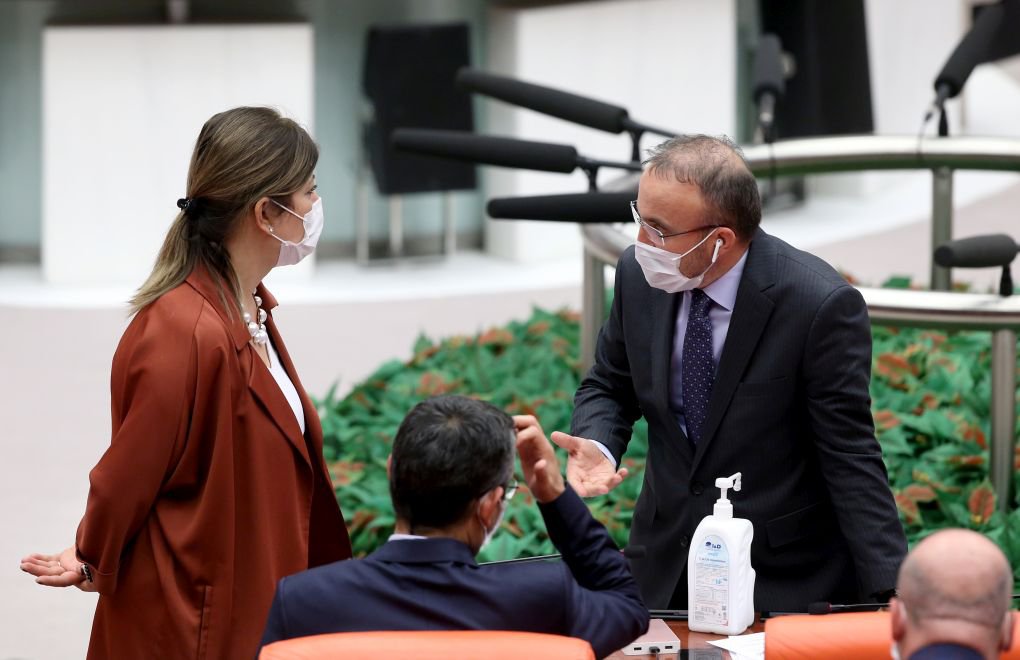

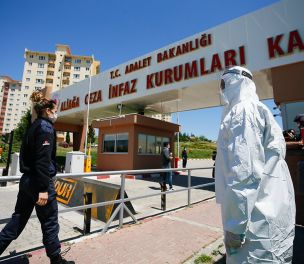



djnejvn.jpg)

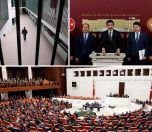
kscms.jpg)
